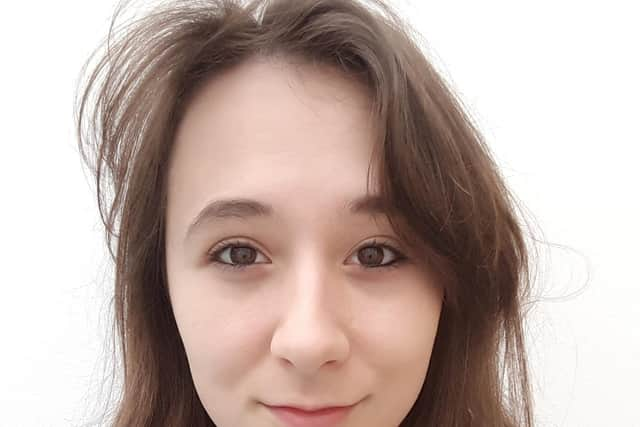Budding Milton Keynes scientist claims bronze medal by wowing experts and MPs
and live on Freeview channel 276
Heidi Thiemann from Olney, a postgraduate research student at the Open University, has won Bronze for the excellence of her physics research in a national competition, receiving a £500 prize and a medal.
She presented this research to politicians and a panel of expert judges, as part of the annual poster competition,STEM for Britain, on Thursday March 4. After a few days of deliberation, the winners were announced this week.
Advertisement
Hide AdAdvertisement
Hide AdUsually held in the House of Commons, but this year held online, it involves some 200 or so early career scientists, and is the only national competition of its kind.


Heidi was judged against other shortlisted physicists from across Britain, in a competition that also includes categories for researchers who are chemists, biologists, engineers and mathematicians.
Heidi said: "I'm really happy to have been awarded the Physics Bronze award at STEM for Britain 2021. It was a great experience to represent The Open University to the Parliamentary & Scientific Committee and showcase the ground-breaking work we're doing in astronomy in the School of Physical Sciences.
"I personally enjoyed talking with MPs about how we can engage the general public in astronomy research to produce real scientific results, and how we can use astronomy as a great educational tool to get people excited about science."
Advertisement
Hide AdAdvertisement
Hide AdFor three years, Heidi has engaged with over 8,000 members of the public through a platform called ‘the Zooniverse’, devising methods of counting and identifying rare kinds of stars.
So far, Heidi and her team of ‘citizen scientist’ volunteers have sifted through observations of 1.6 million variable stars, to identify the most extreme and unique ones.
They have discovered over 300 new variable stars which periodically change in brightness, as well as a new type of binary star system. These new binary stars are made up of two red giant stars orbiting one another so close that they touch, and they may one day merge and cause a rare type of stunning stellar explosions. These types of stellar explosions have only been observed a handful of times.
The Parliamentary and Scientific Committee runs the event in collaboration with the Institute of Physics and other learned societies - the Royal Society of Chemistry, the Royal Academy of Engineering, Royal Society of Biology, Physiological Society, Council for the Mathematical Sciences, and the Nutrition Society.
Advertisement
Hide AdAdvertisement
Hide AdJonathan Flint CBE, President of the Institute of Physics, said: “STEM for Britain provides a unique opportunity for some of our outstanding young and early career scientists to present aspects of their work to policymakers.
“This enables Members of Parliament to find out first-hand about some of the ground breaking research taking place here in the UK.
“Unable to be in the Houses of Parliament this year, they all had to rise to the challenge of presenting their work remotely via an online platform, making the communication of already complex scientific concepts much more of a challenge.
“I warmly congratulate the winning participants, but every single finalist should be very proud of what they have achieved. I do hope they all enjoyed the experience."